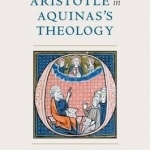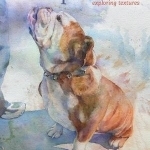Lenard (726 KP) rated Pet Sematary (2019) in Movies
Apr 9, 2019

Lone Rider: The First British Woman to Motorcycle Around the World
Book
In 1982, at the age of just twenty-three and halfway through her architecture studies, Elspeth Beard...

Aristotle in Aquinas's Theology
Matthew Levering and O.P. Gilles emery
Book
Aristotle in Aquinas's Theology explores the role of Aristotelian concepts, principles, and themes...

Mechanisms in the Chain of Safety: Research and Operational Experiences in Aviation Psychology
Alex de Voogt and Teresa C. D'Oliveira
Book
How should we organize our selection or training procedures? In what way can a flight crew mediate...

The Monty Python's Flying Circus: Complete and Annotated: All the Bits
Book
Every script, every episode of the innovative, hilarious, and absurd Monty Python's Flying Circus,...

Splash 16 - The Best of Watercolor: Exploring Texture: 16
Book
100 top artists share the tricks behind their textures! Have you ever stood fascinated before a...

Bad Dreams and Other Stories
Book
In these short stories it's the ordinary things that turn out to be most extraordinary: the history...

Barkskins
Book
Read our exclusive interview with the author here 'One of the greatest American writers'...
Riskwork: Essays on the Organizational Life of Risk Management
Book
This collection of essays deals with the situated management of risk in a wide variety of...

SpeedTraps Live
Navigation and Travel
App
Turn your iPhone into a Speed Trap and Traffic Warning System! SpeedTraps notifies drivers when...

